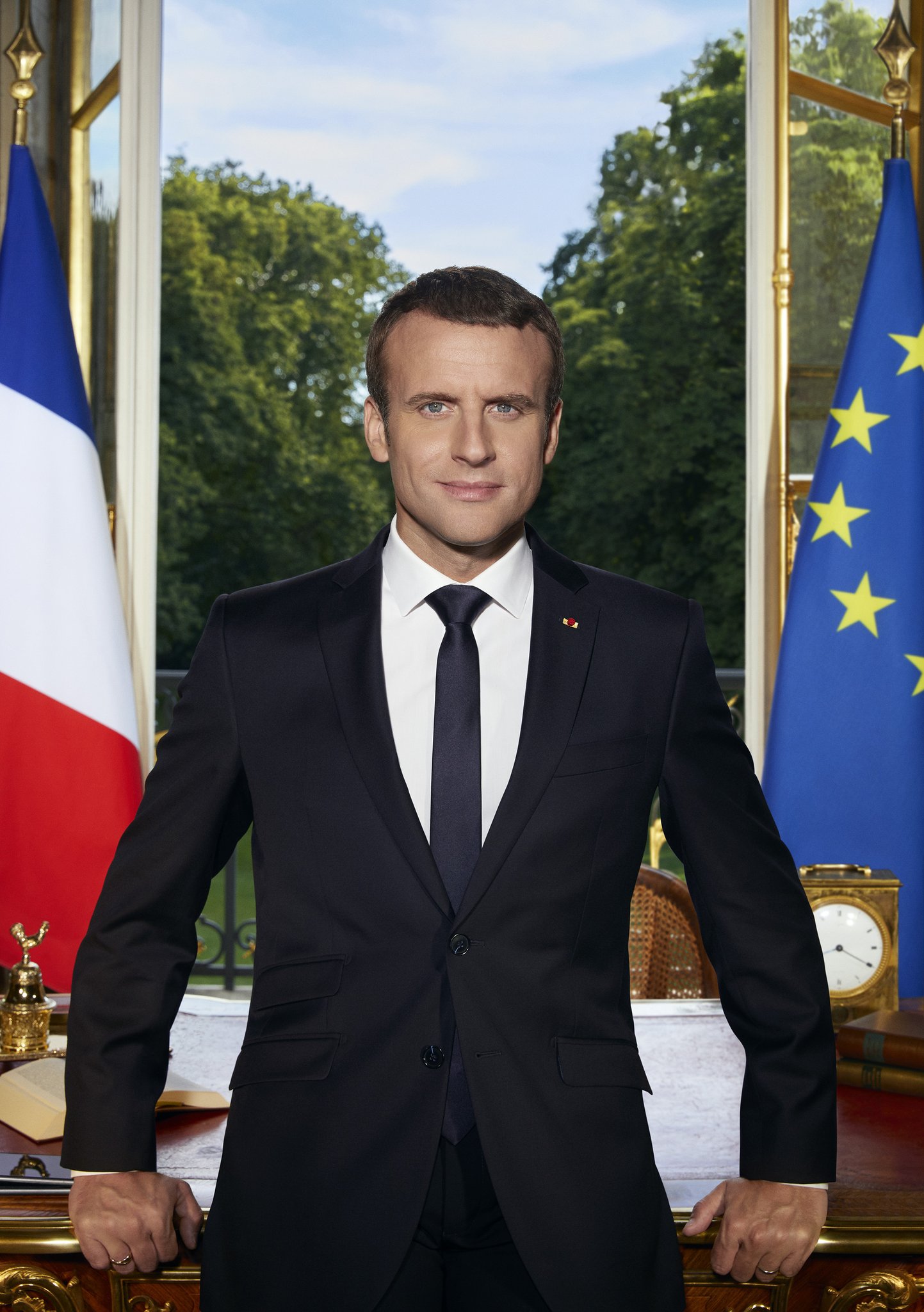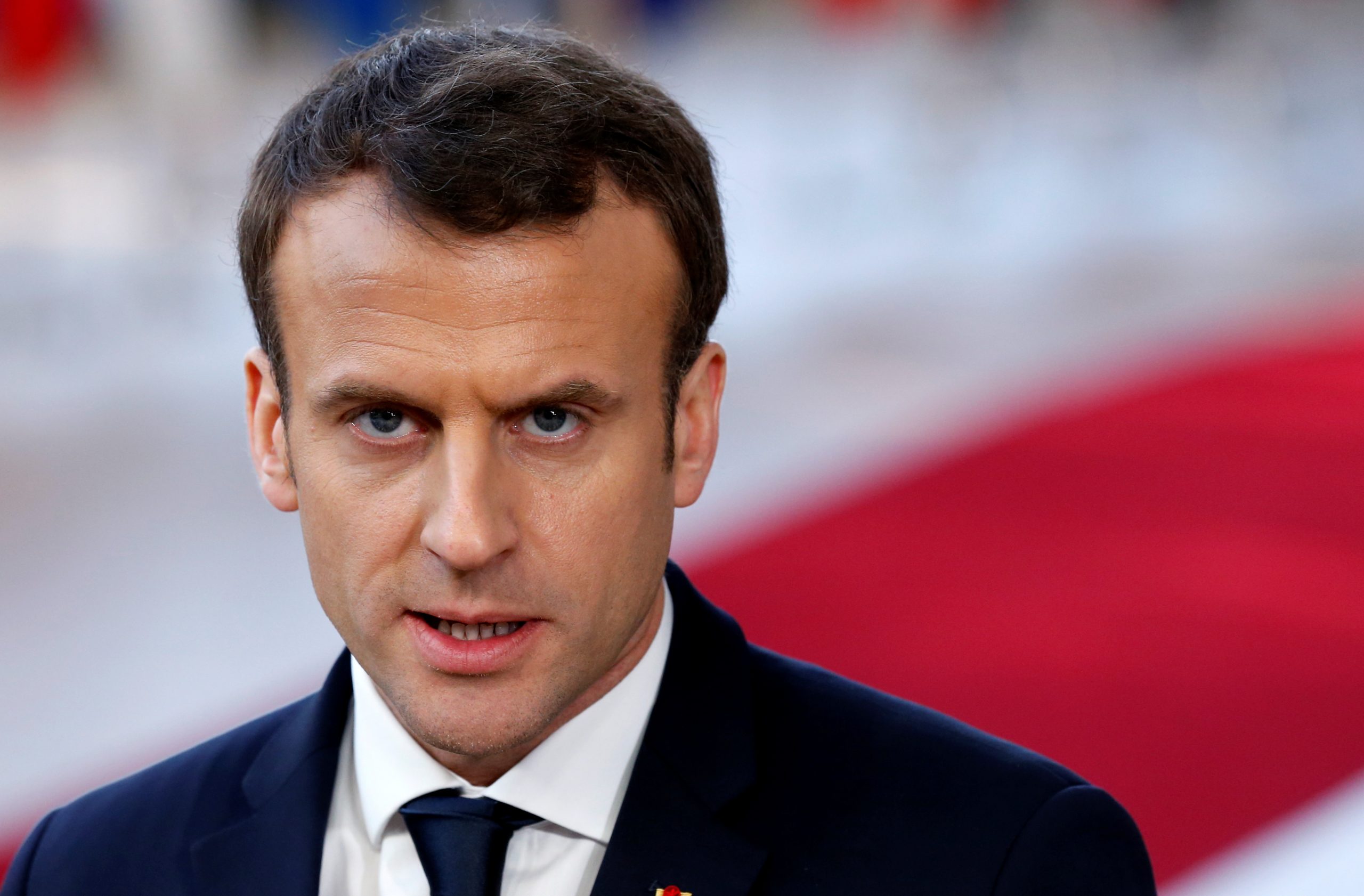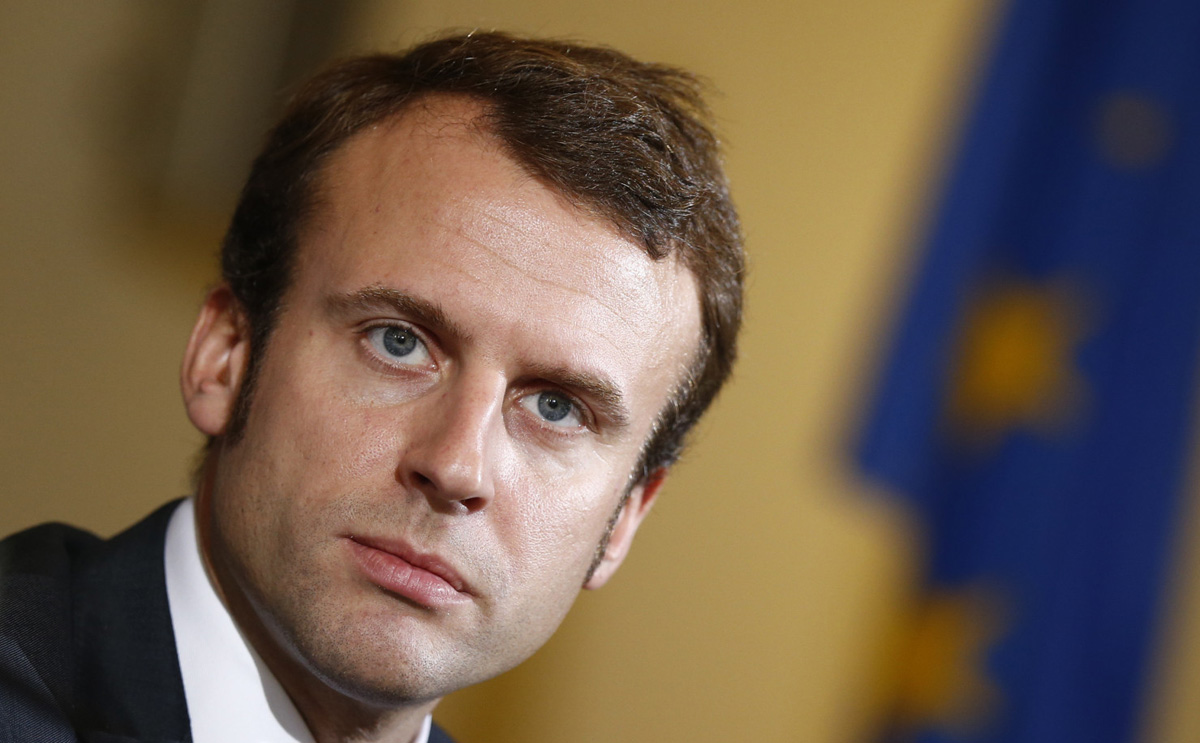President Macron - A Look At France's Leader
Table of Contents
- Who is President Macron?
- Early Life and Background of President Macron
- How Did President Macron Come to Power?
- What is the Role of President Macron?
- President Macron's Time in Office
- What Challenges Has President Macron Faced?
- President Macron on the World Stage
- What is Next for President Macron?
So, you know, there's quite a bit to talk about when it comes to the person holding the top job in France, Emmanuel Macron. He took on the role of president in 2017, which, you might say, made him the youngest person to ever have that kind of position in the entire history of the country. It's a pretty big deal, actually, when you think about it, to be that young and leading a nation.
People often wonder about his journey, how he got to where he is, and what exactly his work involves. He's a figure who has been at the center of many conversations, both within France and with other countries, you know, since he first stepped into the presidential office. There's a lot that shapes his approach and the decisions he makes for the people he serves, and it's interesting to see how it all unfolds.
This discussion will help us get a clearer picture of his background, what he has been up to since becoming president, and some of the bigger issues he has had to deal with. It's really about getting to know the person behind the title, and what his time in such a high position has meant for France, and, you know, for the broader global community too.
Who is President Macron?
Emmanuel Macron, as a matter of fact, is a French person who has a background in banking and politics. He was chosen by the people to be the leader of France in 2017. He was also, you know, the first person in the history of what they call the Fifth Republic to get the top job without having the support of either the Socialist group or the other main group. That’s pretty unusual, you might say, and it really shows a different path to leadership.
He was born in a place called Amiens on December 21, 1977. Before he got into the world of politics in a big way, he had a good career as a civil servant and, you know, someone who worked in the finance world, specifically investment banking. He’s the 25th person to be the president of France and is currently holding that position. It's quite a long line of leaders, so to be number 25 is, in a way, a significant spot.
His education, you know, mainly happened at a Jesuit school in Amiens. It was there, actually, that he met Brigitte Auzière, who would later become his partner in life. He’s known as a politician who stands in the middle ground, you know, not too far to one side or the other. He was also chosen again as president in 2022, which means he's been serving for quite some time now, really, since 2017.
Personal Details and Bio Data of President Macron
| Full Name | Emmanuel Jean-Michel Frédéric Macron |
| Date of Birth | December 21, 1977 |
| Place of Birth | Amiens, France |
| Current Role | 25th and Current President of France |
| First Elected | May 7, 2017 |
| Re-elected | 2022 |
| Political Stance | Centrist |
| Previous Professions | Senior Civil Servant, Investment Banker, Minister of Economy, Industry and Digital Affairs |
| Political Party (Founding Member) | Renaissance (formerly En Marche!) |
Early Life and Background of President Macron
So, looking back a bit, Emmanuel Macron’s journey into public life and leadership began, you know, long before he became a household name. His early days were spent in Amiens, where he was born in 1977. He received his schooling primarily at a Jesuit institution there. It was during these formative years, you know, that he made some important connections, including meeting his future wife.
Before he ever considered running for the highest office, he had already built a pretty solid path for himself. He spent time working in what you might call the public service, which is a big part of how a country runs. And then, he also worked in investment banking, which, you know, involves a lot of financial dealings and understanding how money moves on a larger scale. These experiences, in a way, gave him a good foundation for what was to come.
He wasn't, you know, someone who just jumped straight into politics. He had a career that gave him a broad view of how things work, both in the government and in the financial world. This kind of background, you know, typically helps a person gain different kinds of skills and perspectives, which can be very useful when you're thinking about leading a country. It’s fair to say his earlier work shaped a lot of his later approach to public life, in some respects.
How Did President Macron Come to Power?
Well, to understand how President Macron got to his current position, we need to go back to May 7, 2017. That's the day, you know, when the people of France chose him to be their president. What makes his win particularly interesting is that he was, actually, the first person in the entire history of the Fifth Republic of France to win the top job without having the support of either the main left-leaning party or the main right-leaning party. That's pretty remarkable, you know, when you think about the usual ways political power is gained.
Before he ran for president, he had already served as a government official. He was, in fact, the minister responsible for the economy, industry, and digital matters. This experience, you know, gave him a lot of insight into the workings of the country's financial well-being and its various industries. It was during this time that he gained a lot of public recognition and, you know, built a platform for his future political aims.
He was also a founding member of a political group called Renaissance, which was previously known by another name. This group, you know, was a fresh face in the political landscape and helped him gather support from people who might have felt that the traditional parties weren't quite representing them. So, in a way, his rise to power was a bit different from what people were used to seeing in French politics, and it really caught a lot of attention, you know.
What is the Role of President Macron?
So, what does President Macron actually do in his job? Well, as the president of France, his role involves a lot of things. He is the head of the country, which means he represents France on the world stage and, you know, makes big decisions about how the country is run. He has been serving in this capacity since May 14, 2017, and then, you know, he was re-elected in 2022, so he's still very much in the thick of it.
Part of his job is to, you know, set the direction for the country. This includes everything from economic policies to how France interacts with other nations. For example, he has spoken to journalists at gatherings like the NATO summit, where he talked about important situations, like the one in Iran. He mentioned that France would, actually, complete its own careful look at any damage that might have happened. This shows how he takes on international issues.
He also has a hand in picking other important people in the government. For instance, he faces the challenge of choosing a prime minister who can lead a government where no single political group has a majority in the parliament. This is, you know, a tricky situation because it means he needs to find someone who can work with different groups to get things done. His official website, you know, has more details about his duties, his plans, and how people can get in touch with him, too.
President Macron's Time in Office
Since taking on the top job in 2017, President Macron has, you know, certainly been a very active leader. His time in office has been marked by various actions and initiatives. For instance, he made a point of showing that his leadership hasn't, you know, lessened at all, even after spending more than two hours answering questions at a news gathering. During that event, he also made some promises, which is a typical part of his public appearances.
One of the more recent developments, you know, involved the departure of his prime minister, Michel Barnier. Following this, President Macron spoke out, showing that he was ready to keep things moving forward, even after such a significant change in his government. He came out fighting, as it was described, which means he was very clear and strong in his first public comments after the prime minister stepped down. This happened, you know, a day after what was called a "historic no" vote.
He has also, you know, been involved in discussions about important defense matters. He plans to talk about nuclear deterrence with other European countries that are close to France. This is, you know, a look at France’s unique way of handling such things. It shows how he thinks about the country's safety and its place among other nations, too. His efforts are often about showing that France has a strong voice and a clear strategy.
What Challenges Has President Macron Faced?
Like any leader, President Macron has, you know, faced a fair share of difficulties during his time in office. One of the biggest challenges he has pointed to involves his political opponents. He has, in fact, said that groups on the far right and the far left are responsible for bringing down the government. This kind of blame, you know, highlights the deep divisions that can exist in politics and how hard it can be to get everyone to agree.
Another significant hurdle, you know, is leading a government where his political group doesn't hold a clear majority in the parliament. This means that to get laws passed and policies put into action, he has to work extra hard to get support from other groups. It makes the job of choosing a prime minister even more important, as that person needs to be good at bringing different people together, you know, to form agreements.
He also, you know, recently had to deal with the resignation of his prime minister, which is always a big moment for any government. He vowed to stay in his position until his term is over in 2027 and announced that he would, actually, name a new prime minister. This shows his resolve to keep leading, even when faced with significant changes and, you know, political upsets within his own team.
President Macron on the World Stage
President Macron doesn't just focus on things happening within France; he also plays a pretty big part on the global scene. He has, you know, made a point of showing France's presence and influence around the world. For example, in a clear sign of how important a place like Greenland is becoming, he visited the Arctic island. Experts, you know, see this visit as a way to show that European countries are working together and to send a message to others.
He has also, actually, used international gatherings, like the NATO summit, to talk about serious global issues. When speaking to people who report the news, he addressed the situation in Iran. He mentioned that France would, you know, finish its own careful look at any damage that might have occurred. This really shows how he engages with complex international matters and how France, under his leadership, takes its own stand.
His discussions with other European countries about nuclear deterrence, you know, also show his focus on broader security matters. This is about looking at France's unique way of handling its defense and how it fits into the larger picture of European safety. He often uses these moments to, you know, emphasize France's role as a key player in discussions that affect many nations, not just his own.
What is Next for President Macron?
Looking ahead, President Macron has made it clear that he intends to remain in his current position until his term is complete, which is set for 2027. He has, you know, stated this publicly, showing his commitment to seeing his time in office through. This means that for the next few years, he will continue to be the main person making decisions for France and representing the country globally.
One of the more immediate tasks on his plate, actually, involves choosing a new prime minister. This is a pretty big deal, especially since his political group doesn't have a clear majority in the parliament. He needs to pick someone who can, you know, effectively lead a government that will have to work with different political groups to get things done. It's a key decision that will shape how well his government can function.
He also has plans to discuss nuclear deterrence with other European countries that are close to France. This shows that, you know, he's thinking about France's long-term security and its role in the broader European defense picture. So, it seems like his focus will continue to be on both domestic issues, like government leadership, and important international matters, too, for the remainder of his time as president.
This article has given us a closer look at Emmanuel Macron, from his early days and how he came to be president, to the various roles he fulfills and the challenges he has encountered. We've explored his background as a banker and civil servant, his unique path to the presidency without traditional party backing, and his re-election in 2022. The discussion also touched upon his duties, his efforts to manage a government without a majority, and his involvement in global affairs, including his visits to places like Greenland and his participation in international summits. We also considered his plans to discuss nuclear deterrence and his commitment to serving until 2027, as well as the ongoing need to select a new prime minister capable of leading a diverse parliament.

Télécharger photos photo officielle d'emmanuel macron, président de la

French President Emmanuel Macron briefs the media as he arrives at a

Emmanuel Macron président de la France | Info Afrique